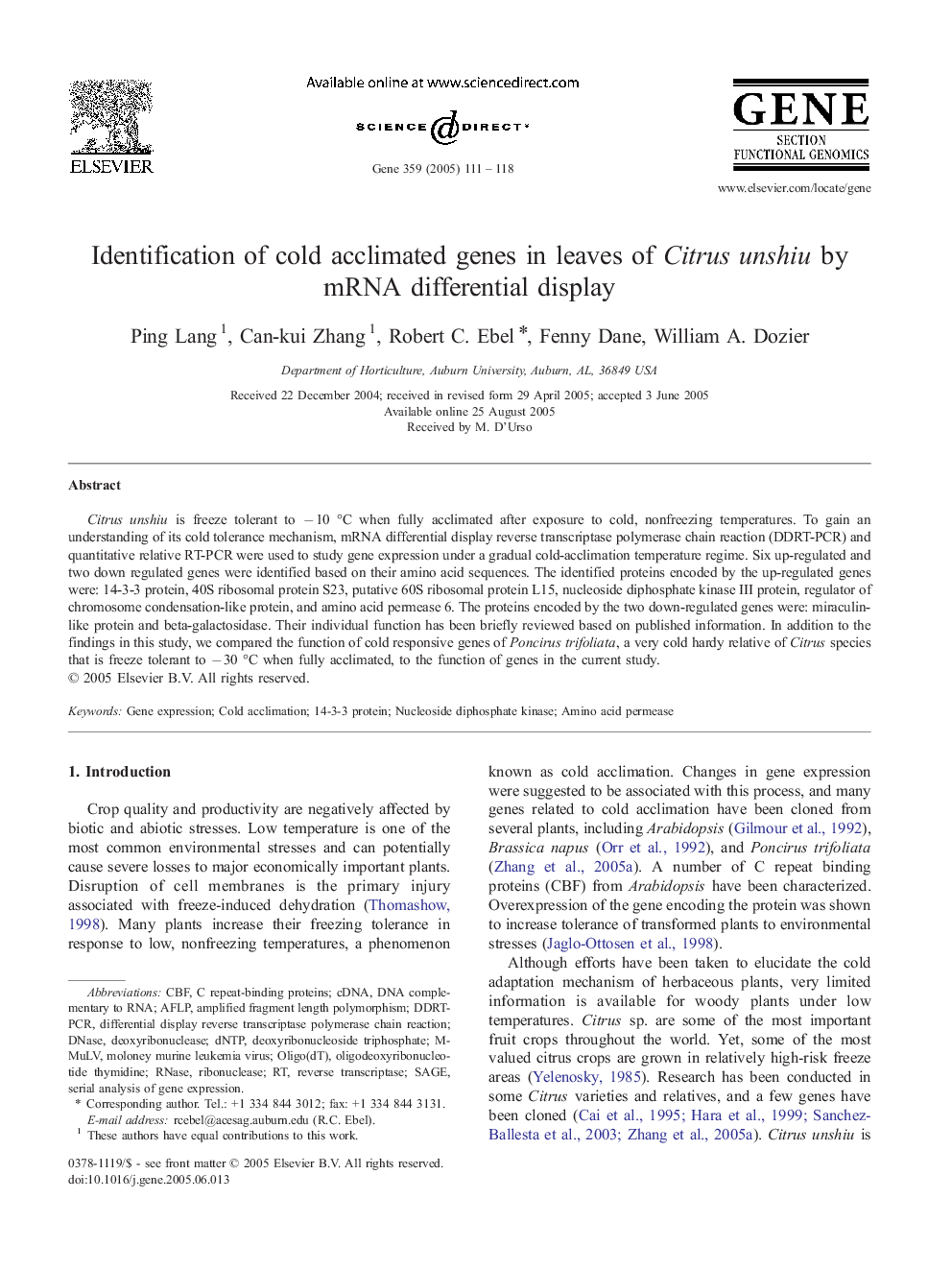| Article ID | Journal | Published Year | Pages | File Type |
|---|---|---|---|---|
| 9126936 | Gene | 2005 | 8 Pages |
Abstract
Citrus unshiu is freeze tolerant to â 10 °C when fully acclimated after exposure to cold, nonfreezing temperatures. To gain an understanding of its cold tolerance mechanism, mRNA differential display reverse transcriptase polymerase chain reaction (DDRT-PCR) and quantitative relative RT-PCR were used to study gene expression under a gradual cold-acclimation temperature regime. Six up-regulated and two down regulated genes were identified based on their amino acid sequences. The identified proteins encoded by the up-regulated genes were: 14-3-3 protein, 40S ribosomal protein S23, putative 60S ribosomal protein L15, nucleoside diphosphate kinase III protein, regulator of chromosome condensation-like protein, and amino acid permease 6. The proteins encoded by the two down-regulated genes were: miraculin-like protein and beta-galactosidase. Their individual function has been briefly reviewed based on published information. In addition to the findings in this study, we compared the function of cold responsive genes of Poncirus trifoliata, a very cold hardy relative of Citrus species that is freeze tolerant to â 30 °C when fully acclimated, to the function of genes in the current study.
Keywords
oligodeoxyribonucleotide thymidineamino acid permeaseAFLPdeoxyribonucleaseCBFdNTPM-MuLVDDRT-PCROligo(dT)RNasecDNADNA complementary to RNADNAseCold acclimationGene expressionSerial analysis of gene expressionReverse transcriptaseSAGEdeoxyribonucleoside triphosphateNucleoside diphosphate kinaseribonucleaseMoloney murine leukemia virus14-3-3 proteinAmplified fragment length polymorphism
Related Topics
Life Sciences
Biochemistry, Genetics and Molecular Biology
Genetics
Authors
Ping Lang, Can-kui Zhang, Robert C. Ebel, Fenny Dane, William A. Dozier,
